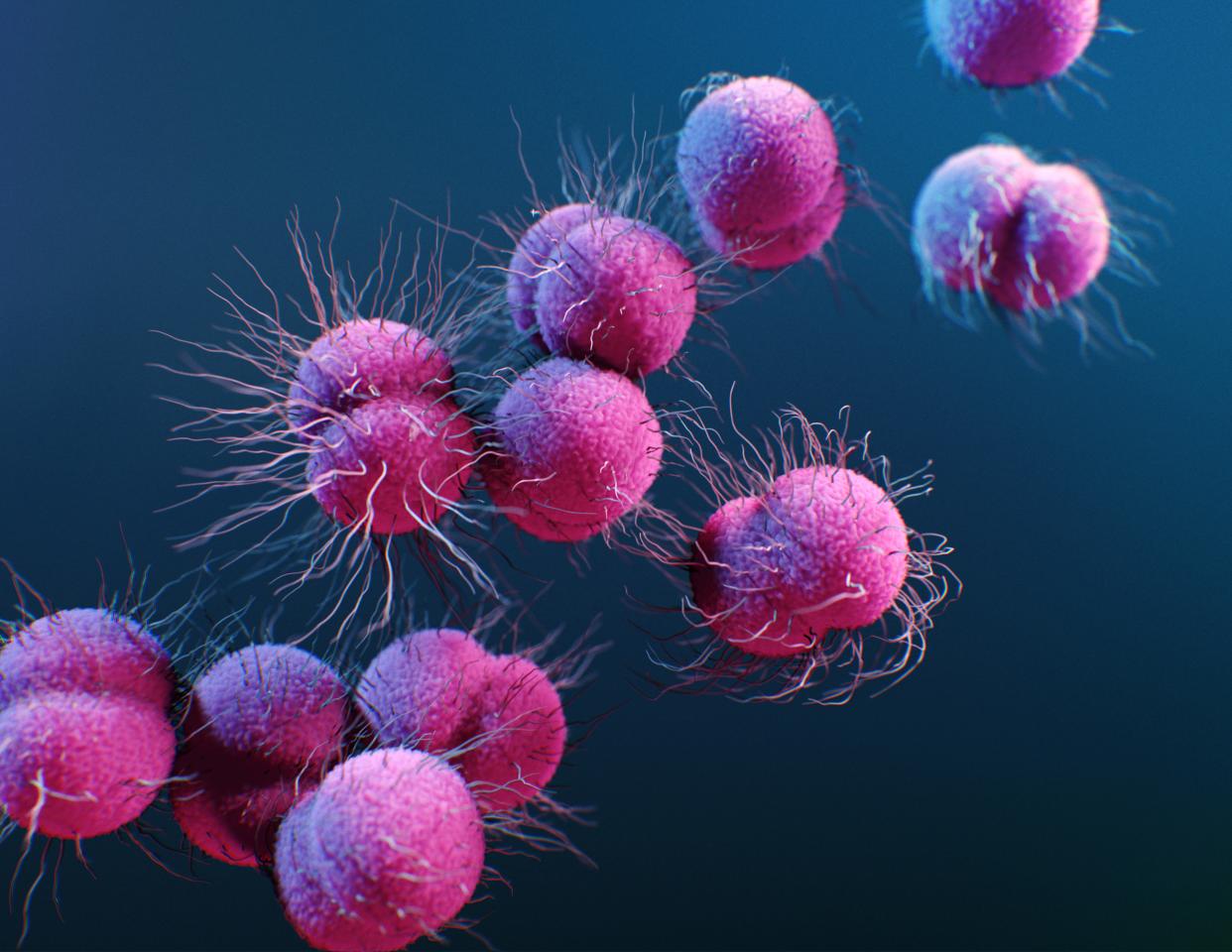Cancer and diabetes drugs could treat antibiotic-resistant gonorrhoea

Existing drugs may have to be repurposed to combat antibiotic-resistant gonorrhoea.
Gonorrhoea is among the most common sexually transmitted infections (STIs) in the UK, affecting more than 44,000 people in 2017 alone.
The bacteria have evolved into a "superbug", developing resistance to nearly all antibiotics. Left untreated, gonorrhoea can spread to a person's reproductive organs, triggering pain, infertility and pregnancy complications.
As antibiotic resistance continues to grow, pharmaceutical companies may be less incentivised to develop new antibacterial drugs – which rid patients of an infection relatively quickly – over a once-a-day blood pressure or cholesterol treatment.
Read more: The Life Edit podcast reveals the health danger we're ignoring
Presenting at the European Congress of Clinical Microbiology & Infectious Diseases conference, scientists from NOVA University Lisbon said they have found that 57 existing drugs – which treat everything from cancer to diabetes – could be repurposed to combat the STI.
Gonorrhoea began developing antibiotic resistance "soon after the antimicrobial medicines started to be used", according to the World Health Organization. "This has continued to expand over the past 80 years".
The STI no longer responds to once-effective drugs like penicillin. It is also building up resistance against the antibiotic class cephalosporins, the "so-called last line option".
Read more: Fish oil supplements may combat antibiotic resistance
Developing new drugs is a long and expensive process. A more cost-effective approach is to repurpose existing medications that are already known to be safe for other conditions.
This NOVA scientists set out to uncover whether any existing drugs could target gonorrhoea's energy production or its so-called efflux pumps.
Efflux pumps remove harmful toxins that may otherwise kill bacteria. They also take out other compounds that damage the pathogen, like antibiotics.
The scientists predicted that 680 existing drugs may have potential against gonorrhoea.
These were run through a computer model to gauge whether they may interact with proteins in gonorrhoea's efflux pumps or those involved in its energy production.
Results suggest 57 drugs may work against 30 of gonorrhoea's protein targets – including the antiseptic dequalinium, chemotherapy drug doxorubicin, diabetes treatment metformin and anti-worm medication thiabendazole.
Read more: Antibiotics given unnecessarily to coronavirus patients
These drugs could be taken alongside antibiotics, preventing the latter from being removed, according to the scientists.
"The identified drugs are approved for a variety of indications, such as epilepsy, hypertension, diabetes and cancer and may serve as lead compounds for the development of new drugs against gonorrhoea," they wrote.
"This work could help establish a new paradigm for the design of new drugs and therapeutic strategies to be used in the treatment of gonorrhoea infections."

Antibiotics are only effective against bacterial infections, but medics have mistakenly prescribed the drugs for viruses, like colds and flu. This gives bacteria a better shot of developing resistance.
Patients failing to take antibiotics as prescribed, for example by coming off them too soon, also contributes to the problem.
In 2015, antibiotic use had increased by 6.5% over the past four years in England alone. In the US, at least 30% of the drugs prescribed are considered to be "unnecessary".
One of the most well-known examples is methicillin-resistant Staphylococcus aureus (MRSA).
The bacteria S. aureus live harmlessly on the skin of around one in 30 people. If they enter the body, however, S. aureus can trigger dangerous infections.
Now resistant to the antibiotic methicillin, MRSA is said to kill more people in the US every year than acquired immune deficiency syndrome (AIDS), Parkinson's disease, the lung condition emphysema and murder combined.
While scientists work to solve the problem, the public can help combat antibiotic resistance by following prescriptions carefully and never sharing or skipping doses.
Good hand hygiene and staying up-to-date on vaccines can also help.
Watch: Antibiotic resistance may lead to more coronavirus deaths



